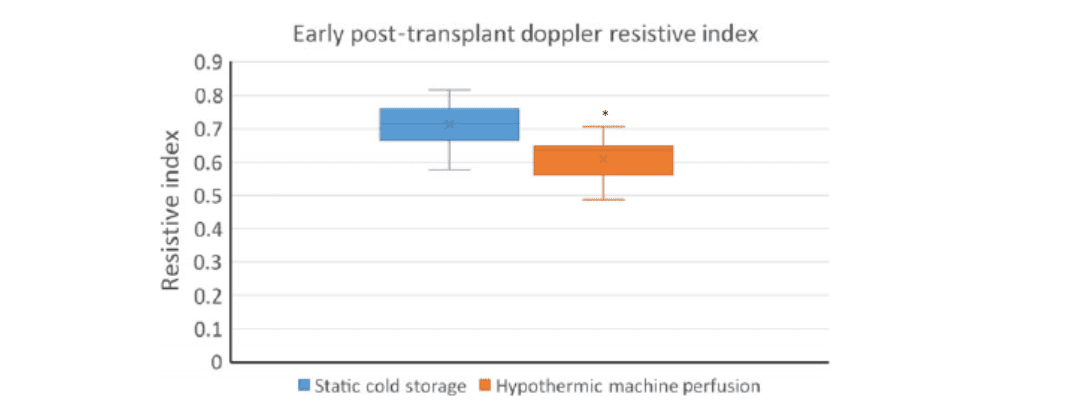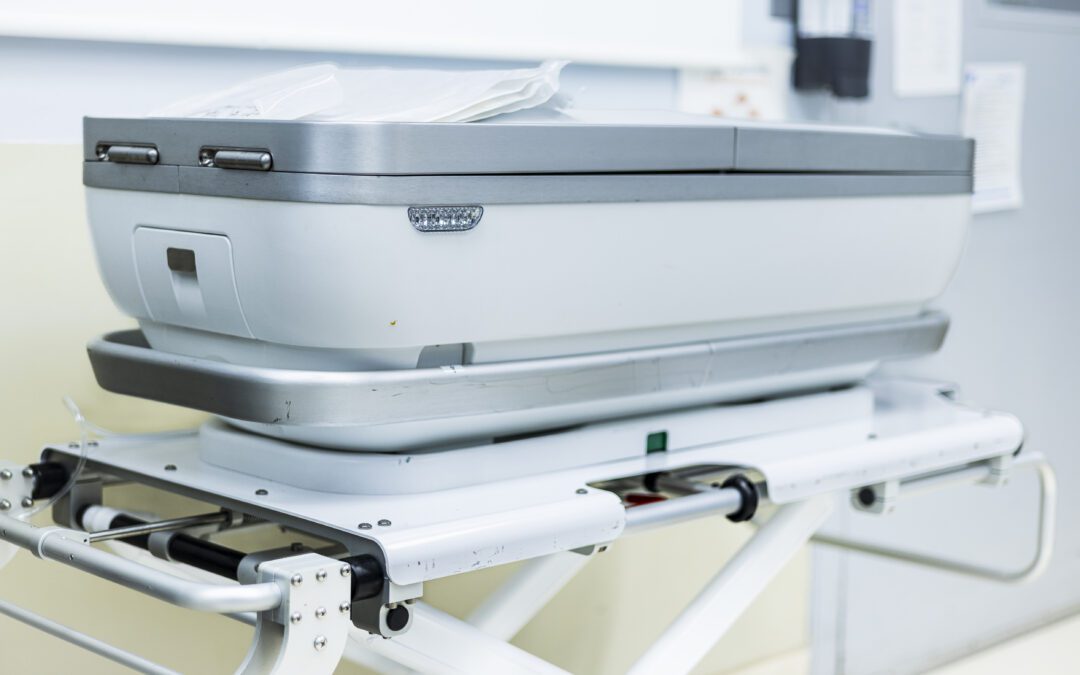Moser et al. sought to determine whether the short warm ischemic time in living donor kidney (LDK) transplantation causes damage to the kidney, and whether these kidneys could benefit from the use of hypothermic machine perfusion (HMP). In their initial experiment, they compared the results of 16 LDK kidneys that were placed on HMP to historical controls.
They found that:
- The perfusate had significant injury markers in the perfusates of the LDK kidneys
- Suggesting damage during the normothermic ischemia period
- Creatinine clearance was significantly higher in the HMP group at post-operative day 2 and persisted at one-year post-transplant
- The vascular resistance improved during HMP and this persisted in the early post-operative period
- The resistive indices were significantly less for the HMP group than the static cold storage group

They noted that the significant levels of injury markers in perfusate of the LDK after a short preservation time suggests that injury does occur in this procedure. They concluded that their early experience suggests that HMP may be beneficial to LDK in terms of early changes to vascular resistance and early function.
Read the full article here: https://onlinelibrary.wiley.com/doi/full/10.1111/tri.12964
The Latest





